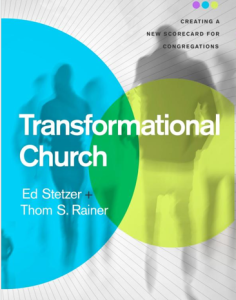Dear Brothers and Sisters in Christ,
 Because some of my dear friends are going through severe health trials, I’ve been thinking about suffering and the peace and hope that God gives us in times of suffering. I feel very deeply for these friends—concerned about the pain they are experiencing and the anxiety they must feel concerning what might be coming. When our loved ones suffer, we struggle to find words of reassurance and comfort. I’m sure you can identify with what I’m trying to say here.
Because some of my dear friends are going through severe health trials, I’ve been thinking about suffering and the peace and hope that God gives us in times of suffering. I feel very deeply for these friends—concerned about the pain they are experiencing and the anxiety they must feel concerning what might be coming. When our loved ones suffer, we struggle to find words of reassurance and comfort. I’m sure you can identify with what I’m trying to say here.
All people desire a life that is free of suffering. That includes those who deny God’s existence. Sadly, their worldview leaves them without assurance of God’s help in times of suffering. But as Christians, we have a different worldview—we are blessed to know that God is alive and active and we cling to his sure promise to always be with us—including in times of suffering and pain. We look to him for his gifts of supernatural peace and hope in the midst of suffering.
God’s gift of peace
Some Christians wrongfully believe that if their faith is strong enough, they will never suffer. But that idea distorts the gospel. Jesus did not promise to airlift us out of all of life’s troubles. Instead, he promised that, whatever our circumstances, God—Father, Son and Spirit—would never abandon us; never lose control of our situation. Jesus promised that when his followers suffer, they will experience God’s gift of peace.
Even when we feel alone, God is right there with us—extending his friendship and support. Even situations that, humanly speaking, seem to be desperate are not beyond his reach. Our God is omnipresent and sovereign over all things, including eternity. This awareness—this assurance—allows us to have a sense of peace that makes no sense to unbelievers (John 14:27). The apostle Paul, no stranger to pain and suffering, called it “the peace of God, which surpasses all understanding” (Philippians 4:7 NKJV).
One of the ways God gives us peace is by reassuring us that he understands. Jesus has experienced fear, pain, suffering and death. Knowing that he was about to be tortured and then crucified, Jesus prayed with great emotion in the Garden of Gethsemane: “Father, if you are willing, take this cup from me; yet not my will, but yours be done” (Luke 22:42). Then the next day, hanging on the cross, in one of his last, tortured breaths, Jesus shared our angst and even our despair when he quoted from Psalm 22: “My God, my God, why have you forsaken me?” (Matthew 27:46).
This anguished cry from the cross tells us that Jesus identifies fully with our pain, our suffering and our eventual death. Jesus is right by our side throughout all our trials. His assurance that he feels our pain and never leaves or forsakes us is not just a routine, “get well soon” tweet from the comfort and safety of heaven. He shows us, in his parable in Matthew 25, that he feels the pangs of those who are hungry, the loneliness of the prisoner, and the cry of the poor.
Jesus’ involvement with our pain and suffering did not end at the cross. He is personally and actively at work here and now—suffering along with us through our every grief and heartache. His presence, though invisible, is real. He cries with us; aches with us. He is so close to us, that Paul could say that our suffering somehow is a sharing in Jesus’ own suffering (Philippians 3:10, Colossians 1:24).
As our “merciful and faithful high priest” (Hebrews 2:17), Jesus is at our side. He never leaves us—not even in the midst of our darkest nightmares (Hebrews 13:5). “Because he himself suffered when he was tempted, he is able to help those who are being tempted” (Hebrews 2:18). We can take great comfort in this, knowing that he is willing and fully able to “empathize with our weaknesses” (Hebrews 4:15).
We get a better sense of Jesus’ presence with us when we serve one another. I am always strengthened when I experience or simply hear of our brothers and sisters in Christ displaying true friendship by being at the side of those who suffer, or by simply assuring them that, “You are in my prayers.” It is so important that we “bear one another’s burdens” (Galatians 6:2 NKJV). In doing so we somehow share in Christ’s own giving of comfort to another person (2 Corinthians 1:3-7).
When we are confronted with death—our own or of a loved one—these promises become more than just pious words to be read at a funeral. Jesus actually did—actually does—share our humanity—all of it, from beginning to end. As a perfect substitute for us, he tasted death for all of us. But having tasted it, he, so to speak, spat it out. He showed that physical death was not the end of life. He elevated human existence to a place of spiritual union with the Father by the Spirit. The wonderful benefit of what Jesus did so long ago extends from the past, to the present, and right on into the future. “For if, while we were God’s enemies, we were reconciled to him through the death of his Son, how much more, having been reconciled, shall we be saved through his life!” (Romans 5:10).
God’s gift of hope
I am not saying that we should have a parade of happiness when Jesus leads us through the valley of the shadow of death. Death is a great enemy, but it is the last enemy that we will ever face. It has been completely defeated by our Savior. Though knowing this does not remove all of our anxiety or pain, it does put it in perspective. That is why Paul wrote, “I consider that our present sufferings are not worth comparing with the glory that will be revealed in us” (Romans 8:18).
Yes, we grieve—but not “like the rest of mankind, who have no hope” (1 Thessalonians 4:13). Indeed, we have great hope—a hope that Gary Deddo explores in this issue as we continue his helpful series about the kingdom of God.
I pray that we all will be comforted and encouraged by these words of wonderful truth.
Your brother in Christ,









